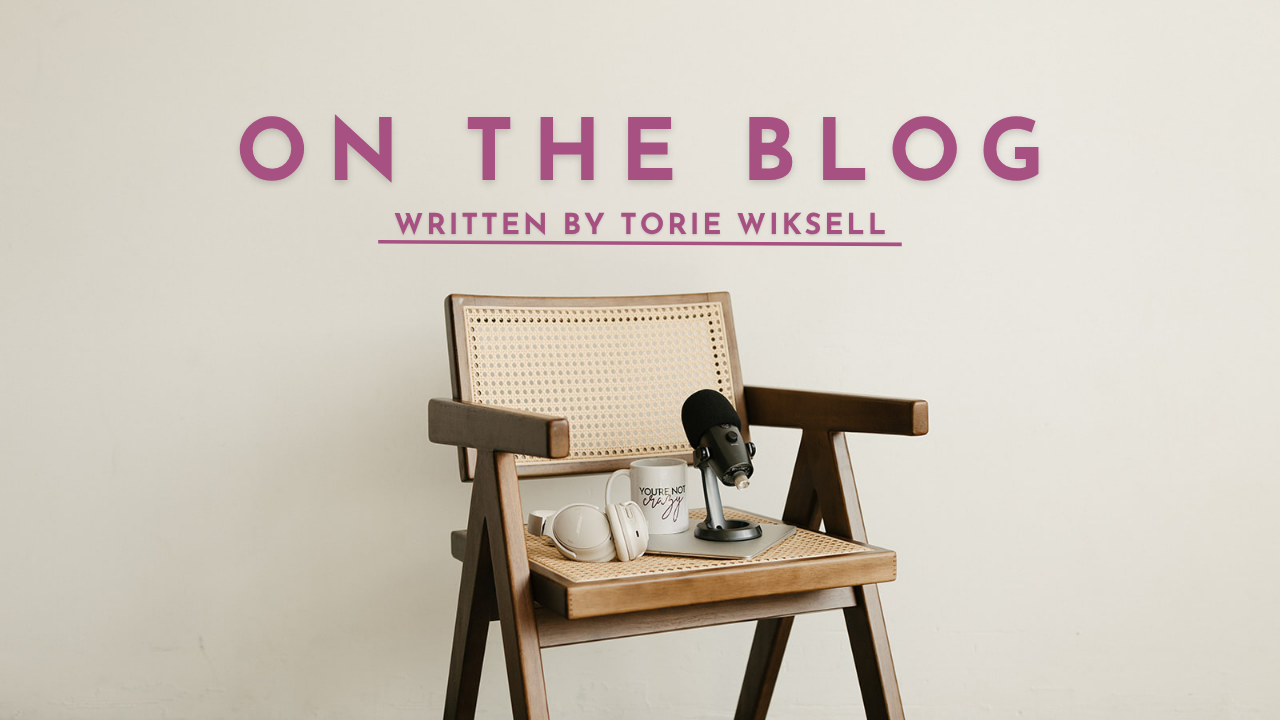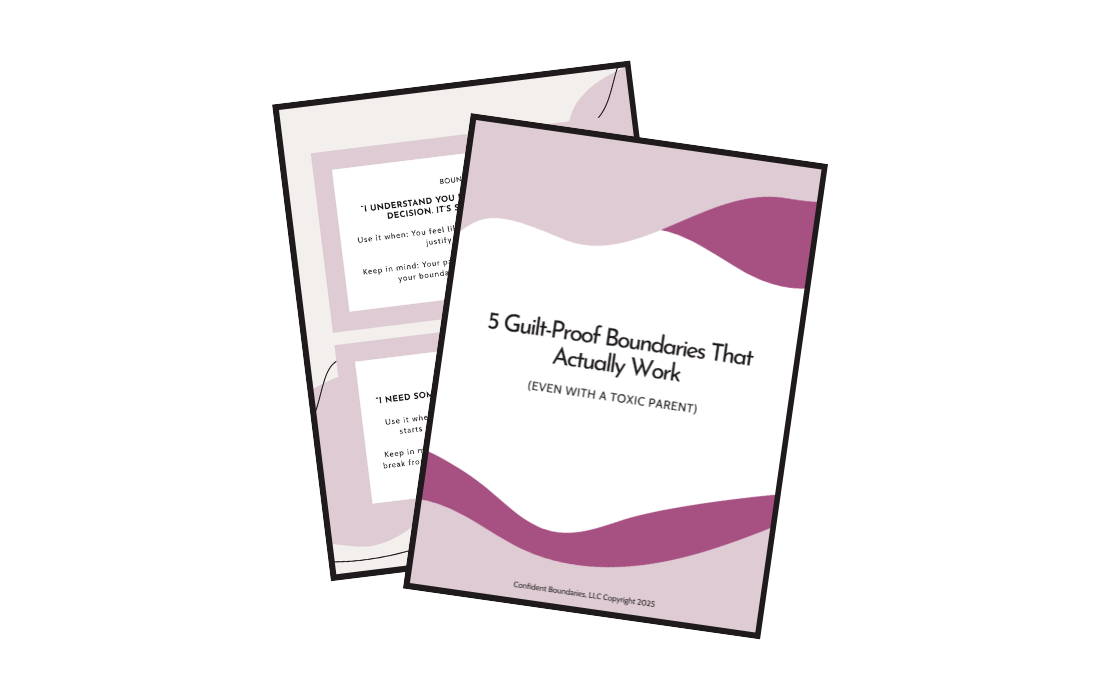
Embracing Anger: A Path to Healing
Let’s just start with this:
Anger isn’t bad.
Seriously. It’s not dangerous. It’s not shameful. It’s not a sign that you’ve “become just like your parent.”
It’s human.
But if you grew up with emotionally immature parents—or worse, a parent with borderline or narcissistic personality disorder (BPD or NPD)—anger probably wasn’t something you ever saw handled in a healthy way. Maybe it exploded all over everyone. Or maybe it was used to punish, manipulate, or control. Either way, it probably felt scary and unsafe.
So it makes perfect sense if your relationship with anger is complicated.
But here’s the truth: anger can be one of the most powerful tools for healing—if you know how to work with it.
If You Grew Up in a Dysfunctional Family, You Probably Learned That Anger = Danger
When you have a parent with BPD, anger usually shows up as emotional volatility—yelling, crying, storming off, making threats.
When it’s NPD, it’s more controlled but just as damaging—cold fury, silent treatment, calculated punishment.
So what did that teach you?
That anger is something to fear. That it’s explosive, unpredictable, and unsafe.
That if someone’s angry, you did something wrong. Or worse—that anger always leads to abandonment.
That kind of conditioning runs deep. So if you now avoid conflict, freeze up during tense conversations, or feel intense shame for expressing frustration... you’re not alone.
Here’s the Reframe: Anger Is Just an Emotion
It’s not the emotion that’s dangerous. It’s the behavior that follows when someone hasn’t learned how to handle it.
This distinction is huge.
Anger itself is not abusive.
Yelling, blaming, shaming, threatening, or stonewalling someone because you’re angry? That’s abusive.
So when you feel angry, that doesn’t mean you’re being toxic or “just like your parent.”
It means something inside you is saying:
“A boundary was crossed.”
“This isn’t okay.”
“I need something to change.”
That’s not dysfunction. That’s information.
Anger Is a Sign—Not a Problem
So many adult children of toxic parents have internalized the idea that “feeling angry = being bad.”
But anger is a deeply protective emotion.
It rises up when your needs are being ignored. When your limits are being crossed. When something you care about is being threatened.
If you ignore it, it doesn’t disappear.
It just shows up later as resentment, burnout, anxiety, passive-aggression, or full-on emotional shutdown.
But if you learn how to listen to it—really listen—anger can become one of your biggest allies.
What It Looks Like to Use Anger Constructively
Let’s be clear: anger doesn’t mean yelling or lashing out.
It can mean:
-
Speaking up when something feels unfair
-
Leaving a conversation that’s become hurtful
-
Setting a boundary that protects your peace
-
Saying “no” without over-explaining
-
Feeling the fire in your chest and choosing to listen to it instead of stuffing it down
Anger is what helps you say, “Enough.”
And for people who were raised in dysfunctional families, learning how to say “enough” is revolutionary.
“But What If I End Up Like My Parent?”
One of the biggest fears I hear from clients and community members is this:
“If I let myself be angry, won’t I become like them?”
No. You won’t.
Because the difference is: you’re conscious of it. You care about how your anger impacts others. And you’re willing to do the work to handle it differently.
You’re not explosive or manipulative.
You’re not using anger as a weapon.
You’re feeling something real and trying to respond to it in a healthy way.
That is the opposite of being emotionally immature.
Validating All Emotions—Not Just the “Nice” Ones
Anger isn’t the only emotion you probably had to suppress.
Many adult children of BPD or NPD parents learn early on that:
-
Joy makes others jealous
-
Sadness is “too much”
-
Confidence is “cocky”
-
Disappointment is “ungrateful”
So what do you do?
You shut it all down.
You become neutral, pleasant, agreeable.
You keep the peace—until you can’t anymore.
But real healing means letting yourself feel everything.
Not just what’s palatable to others.
The Role of Therapy (and Why It Helps So Much)
If anger terrifies you or you freeze whenever it shows up, therapy can be a game-changer.
Working with a therapist who understands emotionally immature parents and trauma can help you:
-
Unpack your fear of anger
-
Understand the difference between emotion and behavior
-
Learn tools for self-regulation
-
Express your needs without shame
You don’t have to be “fixed.” You just have to be supported as you reconnect with the parts of yourself you had to shut down to survive.
Final Thoughts: Anger Can Be a Portal to Healing
Anger isn’t something you have to fear, suppress, or be ashamed of.
It’s a message. A compass. A tool for transformation.
If you grew up in a dysfunctional family with emotionally immature parents who used anger to harm—you get to break that cycle.
Not by avoiding anger.
But by learning how to feel it without becoming destructive.
You’re allowed to get angry.
You’re allowed to be assertive.
You’re allowed to say “this isn’t working for me.”
Anger can help you reclaim your boundaries, your clarity, and your voice.
And no, you’re not the problem.
You’re the one finally telling the truth.
You’re Not Crazy.
But you might have been gaslit by your parents.
Learn how to recognize the signs—and start rebuilding trust in yourself.
I hate SPAM. I will never sell your information, for any reason.



